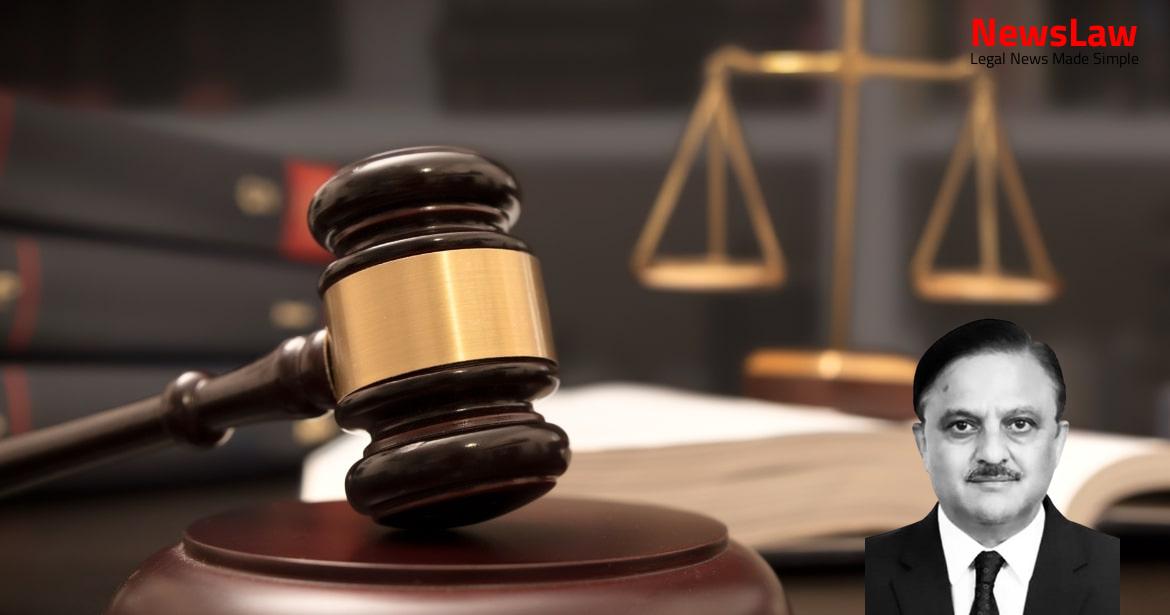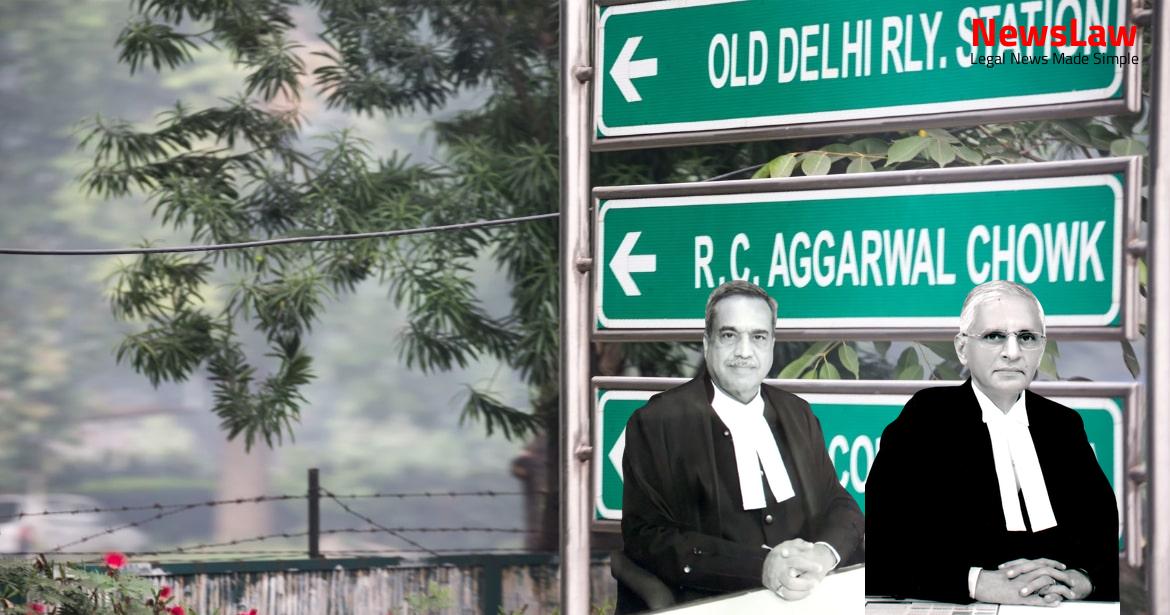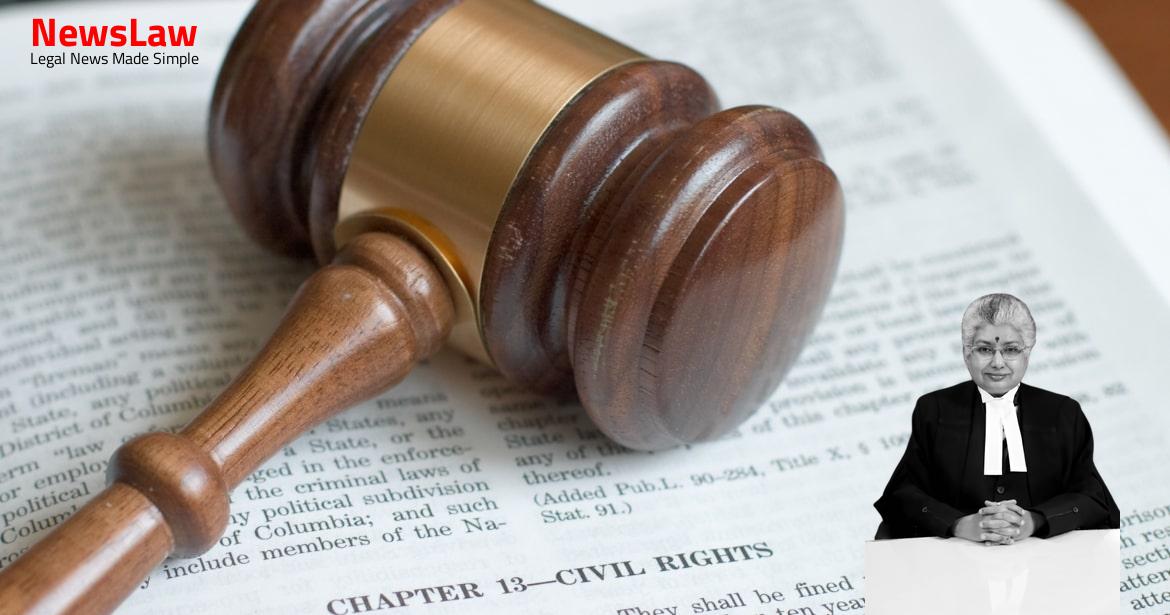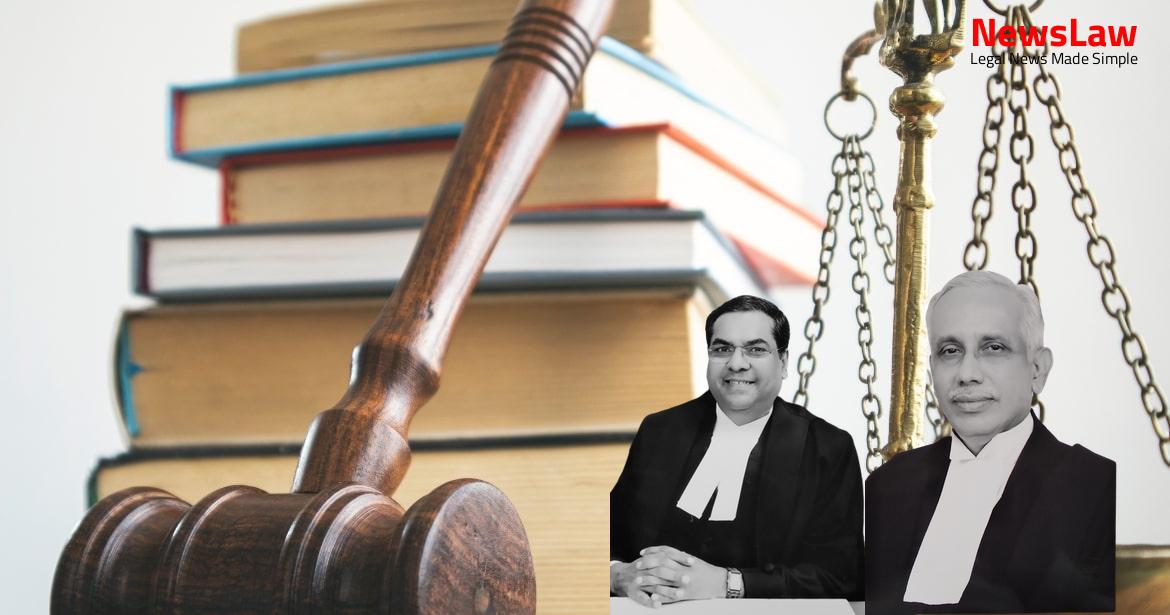Delve into the detailed legal analysis of challenging an ex parte decree in court proceedings. Discover the nuances of appeals and the scope for contesting judgments. Unravel the complexities of court rulings and the significance of legal arguments in such cases. Explore how the courts analyze and interpret the law in matters concerning ex parte decrees. #LegalCase #ExParteDecree #CourtAnalysis
Facts
- The appellant challenged the judgment and order dated 22 March 2016 passed by the High Court of Karnataka in an appeal filed under Section 96 of the CPC.
- The first respondent filed a suit in the City Civil Court at Bangalore seeking a declaration as the absolute owner of Site No.28 at BTM Layout, Bangalore, comprising of lands from different survey numbers.
- The suit property included lands from survey numbers 56, 57, and 60 of Bilkenahalli Village, and survey numbers 61, 71, and 72 of N.S. Palya Village, Bangalore South Taluk, Bangalore.
- The appellant and the second respondent were restrained by the decree of perpetual injunction from entering the suit property and interfering with the first respondent’s possession.
- A decree was passed to remove the structure erected by the appellant on the suit property as it was deemed illegal by the first respondent.
- An appeal against the dismissal of the application related to the structure on the suit property was also unsuccessful.
- The High Court confirmed the decree on merits in the impugned judgment and order.
- The City Civil Court at Bangalore passed a declaratory decree on 19 September 2015, declaring the first respondent as the owner of the suit property.
- In paragraph 20 of the judgment, the trial Judge noted that the appellant and second respondent did not appear or contest the suit despite being served summons.
Also Read: Supreme Court Judgment on Single Till Mechanism for HRAB Calculation: A Comprehensive Analysis
Arguments
- The appellant in this case is challenging the ownership claimed based on a sale deed for a different property
- In an appeal against an ex parte decree, the appellant can challenge the decree only on merits according to a previous court decision
- The appellant’s address mentioned in the cause title of the suit was incorrect, and he was residing at another address on the date of the suit which could be challenged under Rule 13 of Order IX of CPC
- The High Court wrongly assumed that issues regarding failure to serve the suit summons can only be raised in an application to set aside an ex parte decree
- The appellant argues that the service of summons was not properly done, leading to an improper ex parte decree for demolition of a building without involving the purchasers of the property
- The appellant requests setting aside the trial court’s decree and remanding the suit for fresh adjudication
- The appellant cannot challenge the trial court’s decree on the ground of summons not being duly served as no application for setting aside the decree has been filed.
- Both the trial court and the High Court have found that the first respondent has proved his title and ownership over the suit property, and the construction on it is entirely illegal.
- The learned senior counsel argues for the dismissal of the present appeal based on these findings.
Analysis
- An appeal against an ex parte decree can be filed on the grounds that the materials on record do not support a decree in favor of the plaintiff or that the suit should not have been set for ex parte hearing.
- In an application under Order 9 Rule 13 of the Code, the defendant can also argue that they had valid reasons for not being able to attend the hearing.
- When faced with an ex parte decree, the defendant has the options to file an appeal or apply for setting aside the order under Order 9 Rule 13 of the Code.
- The scope of adjudication in an appeal under Section 96 of the CPC by a defendant against whom an ex parte decree has been passed was discussed in the case of Bhanu Kumar Jain.
- Failure of the defendant to avail the remedy under Rule 13 of Order IX of CPC does not prevent him from arguing in the appeal against the decree.
- Defendant can argue that the trial court was not justified in proceeding ex parte against him based on the record of the suit.
- When an appeal is made from a decree, any error, defect, or irregularity in an order affecting the decision of the case can be raised as a ground of objection.
- In cases where summons were not served properly, the defendant can raise objections against the ex parte decree in the appeal.
- In this specific case, attempts to serve summons by regular means failed as the appellant’s premises were found to be locked, questioning the validity of the ex parte proceeding.
- Defendant can challenge an interlocutory order passed during the suit in an appeal against the final decree.
- Acceptance of the prayer for remand of the suit
Also Read: Selection and Appointment of Judicial Officers in Himachal Pradesh
Decision
- The suit was instituted in the year 2014.
- The appellant shall be granted extension of time to file written statement.
- The appellant shall file his written statement within maximum period of one month from 26 September 2022.
- The appellant will have to be saddled with costs quantified at Rs.2,00,000/- (Rupees two lacs only).
- A liberty will have to be granted to the first respondent, if he so desires, to implead the persons in possession of the premises in the building constructed on the suit property.
- The present appeal is partly allowed.
- The impugned judgment and order dated 22 March 2016 passed by the High Court as well as the impugned judgment and decree dated 19 September 2015 passed by the learned Judge of the City Civil Court at Bangalore are hereby set aside.
- Original Suit No.6610 of 2014 is restored to the file of the City Civil Court, Bangalore.
- The first respondent will be entitled to costs quantified at Rs.2,00,000/- (Rupees two lacs only) from the appellant.
Case Title: G.N.R. BABU @ S.N. BABU Vs. DR. B.C. MUTHAPPA (2022 INSC 931)
Case Number: C.A. No.-006228-006228 / 2022



